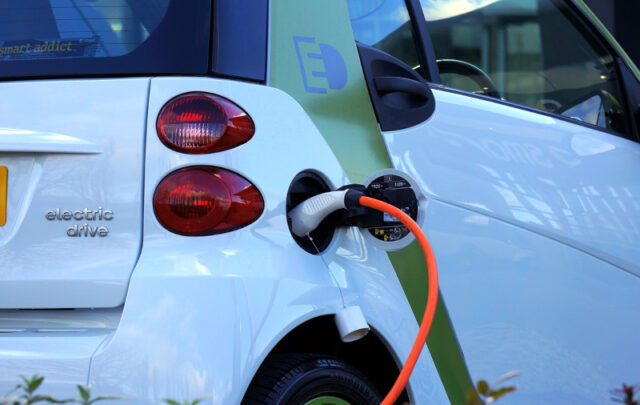SPORT UTILITY vehicles roared into stump speeches this month, flattening all common sense. At a speech last week introducing President Bush, Virginia’s Governor George Allen juiced the crowd by asking how many people arrived there in their SUVs and pickup trucks. After a show of hands, Allen was quoted by The Washington Post as saying, “Heck, John Kerry doesn’t even like what you drive.”
Allen was wrong. Only three days before in Missouri, out of the earshot of the environmental think tanks in Washington and California, Kerry said: “I want Americans to drive. You want to drive a great big SUV? Terrific. That’s America.”
No kidding that’s America, as sure as his environmentalist wife Teresa Heinz Kerry has three SUVs. SUVs now hold so much symbolism that Allen tried to use them against Kerry even while Kerry cuddles up to them out of fear of becoming road kill on Election Day. It’s OK if Kerry says he understands how SUVs came to be so popular, but he just looks plain ridiculous telling SUV owners their lifestyle is “terrific.” Kerry threw in, of course, that he would push for better gas mileage on SUVs and how he and running mate John Edwards are going to buy a hybrid gas-electric SUV.
The reflexive rush to win the SUV vote is no laughing matter on several fronts. Heinz Kerry, like many Americans, says SUVs represent “safety first.” Yet studies show they do not. Figures released this week by the National Highway Traffic Safety Administration show the fatality gap in rollover-prone SUVs to be widening over regular cars and minivans.
The agency also released data last week indicating that the chances of a rollover were more than four times higher for a Ford Explorer Sport Trac than a four-door Mazda RX-8 sedan. The worst-rated car for rollovers, the Subaru Outback wagon, is still only about half as risky as the Chevrolet Tahoe, the Ford Explorer, the Mercury Mountaineer, and the GMC Yukon.
Besides the mirage of safety, the SUV, with its horrific gas mileage and proven negative effects on the air we breathe, remains a potent symbol of how Americans refuse to rethink their place in the world, let alone sacrifice, in the wake of the terrorist attacks of 9/11, the retaliatory war in Afghanistan, and the unprovoked invasion of Iraq.
We are already consuming a quarter of the world’s oil with only about 6 percent of the world’s population. Much of the world suspects that our acute interest in Iraq has less to do with the liberation of its people than the flow of oil to our local gas pumps. We provide no case to the contrary; SUV’s make up 27 percent of America’s light-duty vehicles. Every other car sold in the United States is an SUV, a fact blunted neither by $2-a-gallon gas nor an uncertain economy. Despite the deaths of nearly 3,000 Americans here and nearly 950 US soldiers in Iraq, Americans are literally driving themselves into denial.
In the immediate aftermath of 9/11, many cars, many of them SUVs, brandished American flags. Nearly three years later, many cars sport yellow ribbons in continued support of our troops. One of Bush’s favorite lines of late, in a dig at what he says is Kerry’s indecisiveness on Iraq, is, “There is nothing complicated about supporting our troops in combat.”
The Democrats on the defensive about defense at their recent convention also tried to sound as uncomplicated as possible on supporting troops in combat. The need to appear uncomplicated has prevented politicians from asking a more complicated question: whether the best way to support our troops mean changes at home so we do not have to send them abroad in the first place to protect “our” oil.
That question, of course, is seen as too offensive, even when the current issue of Fortune magazine publishes a 6,300-word article on how the nation needs to stop its “two-decade oil pig-out, gorging like oversized vacationers at a Vegas buffet.” We have pigged out to the point where imported oil has gone from 30 percent of our supplies to 60 percent in the last three decades.
One of Fortune’s four major prescriptions is — surprise! — improved fuel economy. “The real market test will occur in coming months as the frugal efficiency of hybrid technology is married to the profligate embodiment of conspicuous consumption: the SUV,” Forbes wrote. Even that is an arrogant American solution. While Europeans long ago simply went to smaller cars, here we are, performing the equivalent of open-heart surgery on an elephant, offering it the engine of a hummingbird. It might work, but it would work better if Americans were simply not so vain.
So Americans want to drive a great big SUV? There’s no news there. The news will be if Kerry finds a way to say that this is not a terrific way to be an American.
© Copyright 2004 Globe Newspaper Company.





